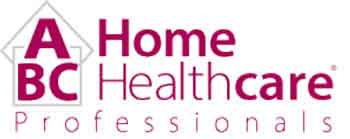What is Alzheimer’s Disease?
Alzheimer’s is a brain disease that causes problems with memory, thinking and behavior. 50 million people, worldwide, are living with Alzheimer’s or some other form of dementia- with over 6 million people being Americans. Alzheimer’s and dementia deaths have increased by 16% during the COVID-19 pandemic and by 2050, the number of Americans living with Alzheimer’s/Dementia is projected to be 12.7 million (more than double the amount we are at today!).
Alzheimer’s Disease is progressive as it worsens over time and has three different stages: early-stage, middle-stage and late-stage. The stages are described below:
| Early-Stage (Mild) | A person may function independently but may feel as if he or she is having memory lapses, at a loss for words or having trouble retracing steps. |
| Middle-Stage (Moderate) | This is typically the longest stage and can last for many years. During this stage, the person may confuse words, get frustrated or angry, experience personality changes and/or become unpredictable. It is at this stage that it becomes clear that an individual needs additional assistance and care. |
| Late-Stage (Severe) | Also known as “the final stage,” this is when the dementia symptoms are at their worst as individuals lose the ability to respond to their environment, they are no longer able to carry on conversation and are unable to control movements. Communication becomes increasingly difficult at this stage and usually around-the-clock assistance with daily activities and personal care is required. |
Education is Empowerment: Know the 10 Early Signs & Symptoms of Alzheimer’s Disease
Many people think that if they are experiencing occasional memory loss that they have Alzheimer’s/Dementia but this is not true. Occasional memory loss is a normal part of aging- Alzheimer’s/Dementia is not. Alzheimer’s/Dementia is not always easy to detect as dementia can take on a variety of forms over a considerable span of time. However, there are 10 early signs and symptoms of Alzheimer’s and they are as follows:
- Memory loss that disrupts daily life
- Challenges in planning or solving problems
- Difficulty completing familiar tasks
- Confusion with time or place
- Trouble understanding visual images and spatial relationships
- New problems with words (whether speaking or writing)
- Misplacing things and losing the ability to retrace steps
- Decreased or poor judgment
- Withdrawal from work or social activities
- Changes in mood, behavior and personality
How is Alzheimer’s Disease Diagnosed?
If you or your loved one is experiencing any of the above, it is recommended that you speak with your primary care physician immediately. To diagnose Alzheimer’s, in addition to one’s medical history, physicians use a combination of different tests: mental status tests, physical and neurological exams as well as a series of other diagnostic tests and brain imaging. In addition to seeing a primary care physician, there are many research clinics that offer free memory screenings. Memory screenings can help you determine whether the memory loss you or your loved one is experiencing is age or stress-related or if it may be a result of something more complex like Alzheimer’s/Dementia.
An Alzheimer’s Diagnosis Has Been Received…Now What?
Receiving this diagnosis is life-changing but it doesn’t have to be Earth-shattering because individuals with Alzheimer’s/Dementia can still enjoy a decent quality of life if the disease is well-managed and if they receive the proper care. Though there is no cure for Alzheimer’s Disease, there are medications and alternative, holistic therapies that can help keep progression under control. In addition, though it is typical for individuals with Alzheimer’s/Dementia to begin to socially withdraw, it is important to ensure that your loved one remains involved in their social circles and communities. The more involved these individuals are the more mentally stimulated they are and this is critical because mental stimulation has been cited as one of the most effective ways to halt the progression of Alzheimer’s Disease.
To this same point, it is wise to start planning on how to arrange the best care for your loved one as caring for a loved one with Alzheimer’s can take a devastating toll on caregivers. ABC Home Healthcare Professionals is a local, family-owned agency specializing in a vast array of home care services from companionship, homemaking, personal care, skilled nursing and more for over 15 years! In addition to personal care services, ABC offers a specialized caregiving program for individuals with Alzheimer’s/Dementia. The Home Health Aides that are “specialized caregivers” have extensive dementia training and can better assist individuals and families impacted by Alzheimer’s/Dementia. If you would like more information on this program or any others, call us today at 781-245-1880!

